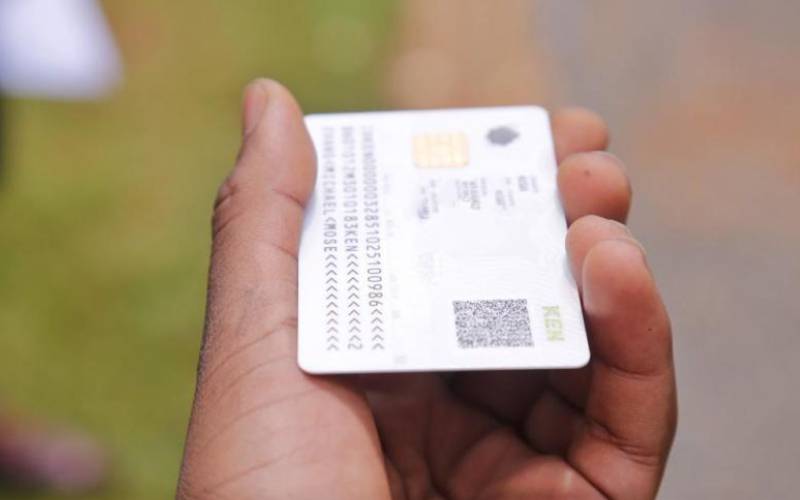×
The Standard e-Paper
Smart Minds Choose Us

Huduma number card. [Courtesy]
Your Huduma Namba could be useless in eight days’ time. This follows National Assembly’s failure to rescue the law on which it is anchored as well as 22 other controversial statutes which the courts had directed be regularised in nine months.